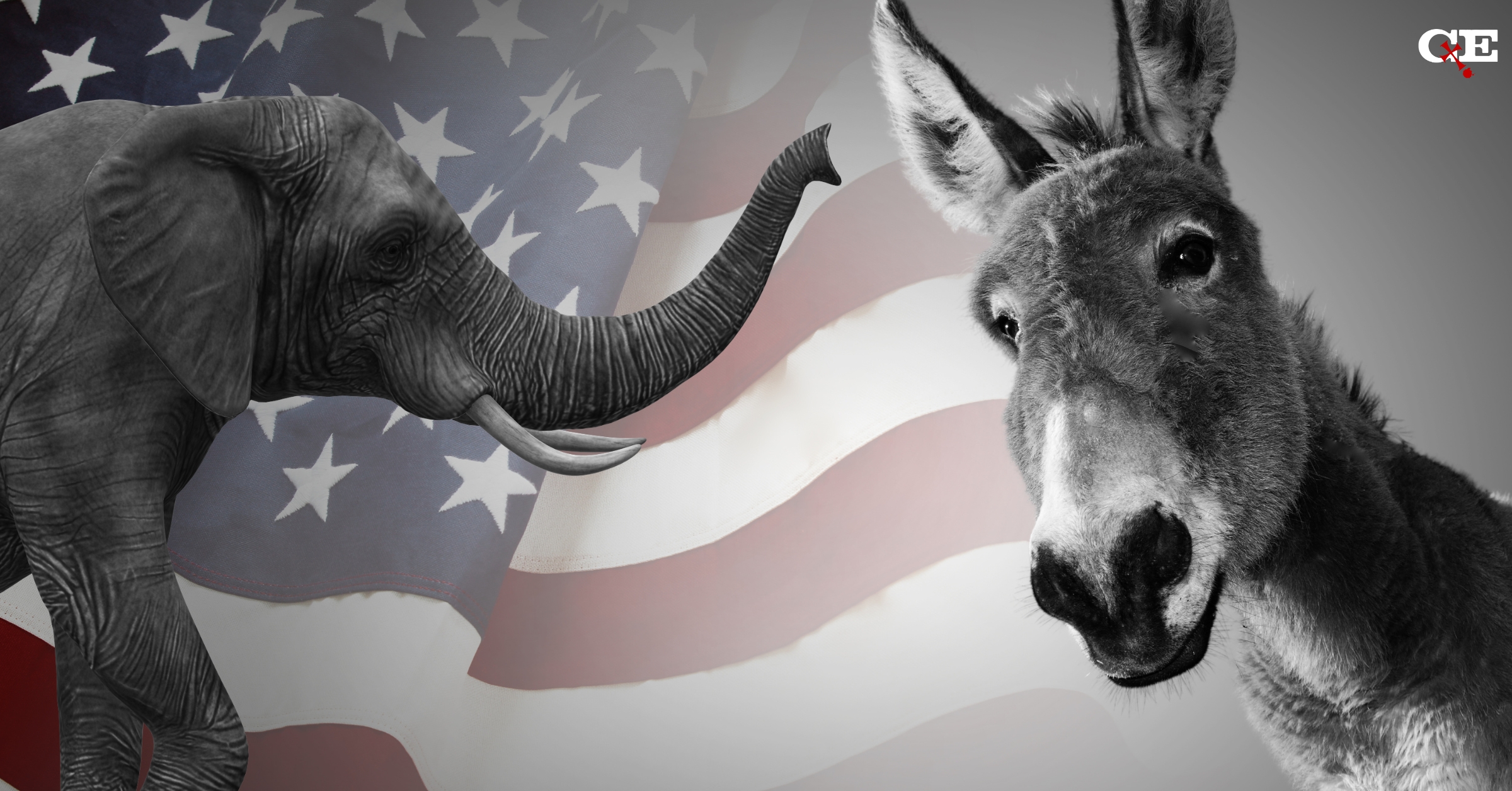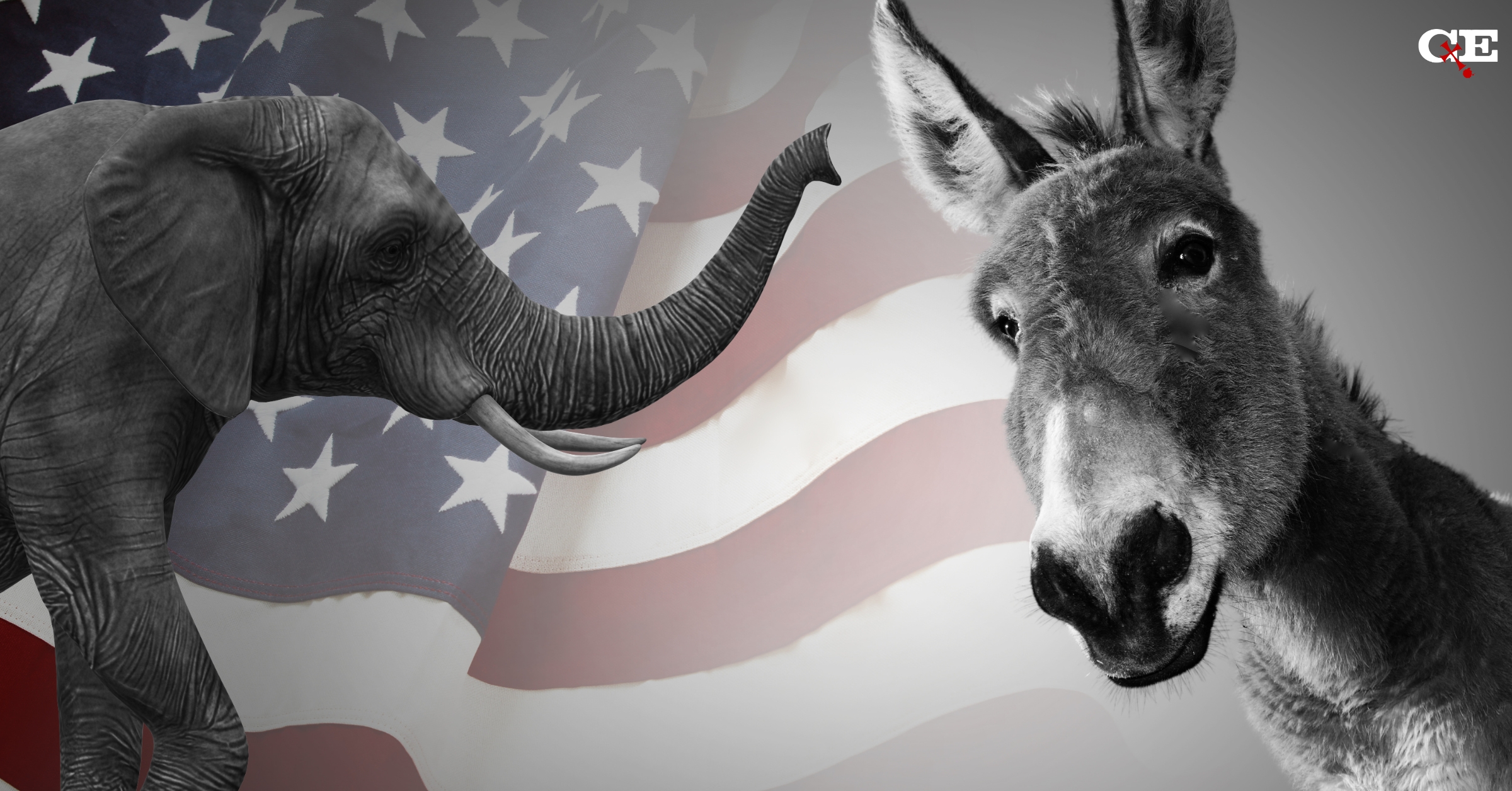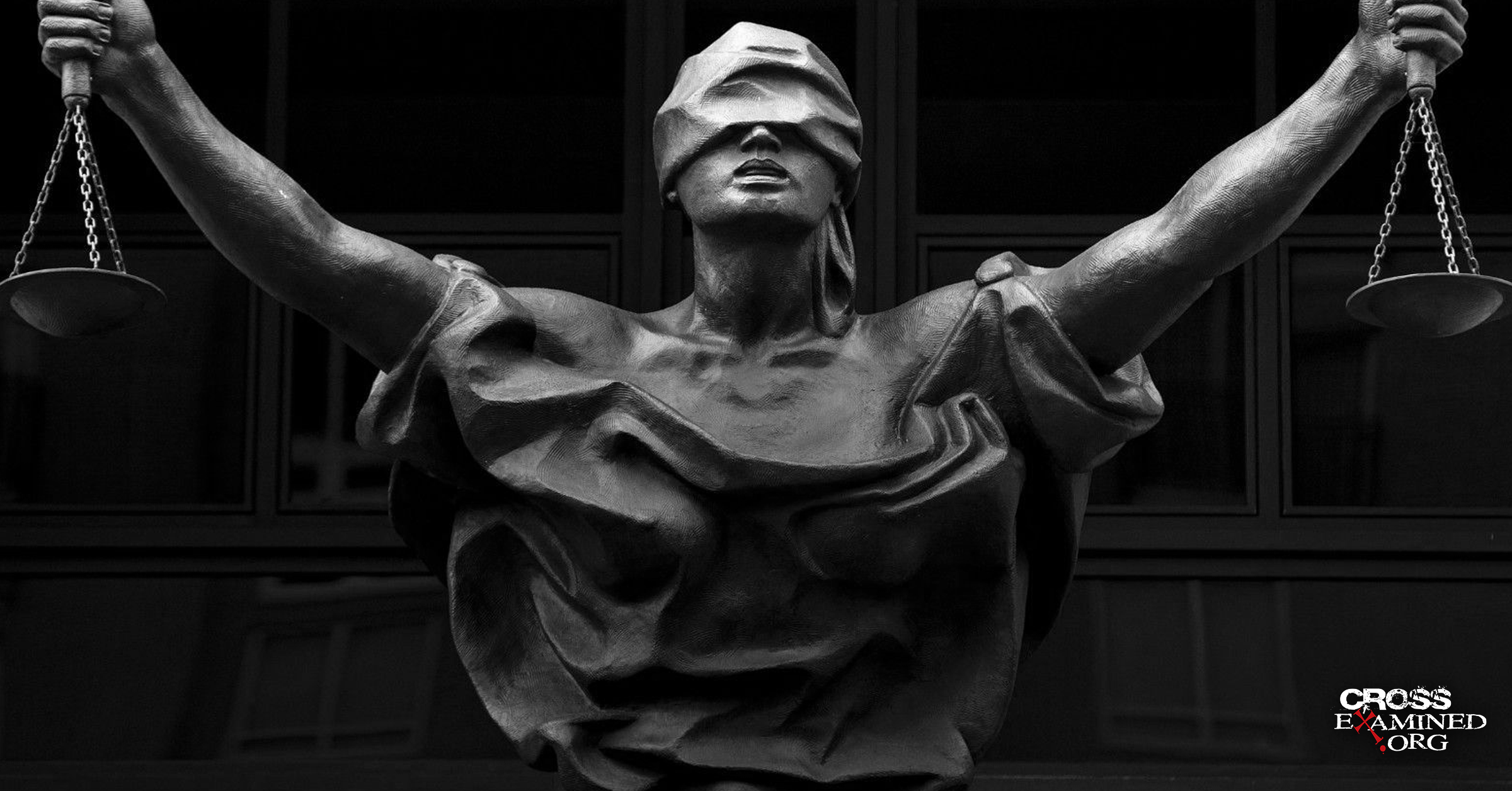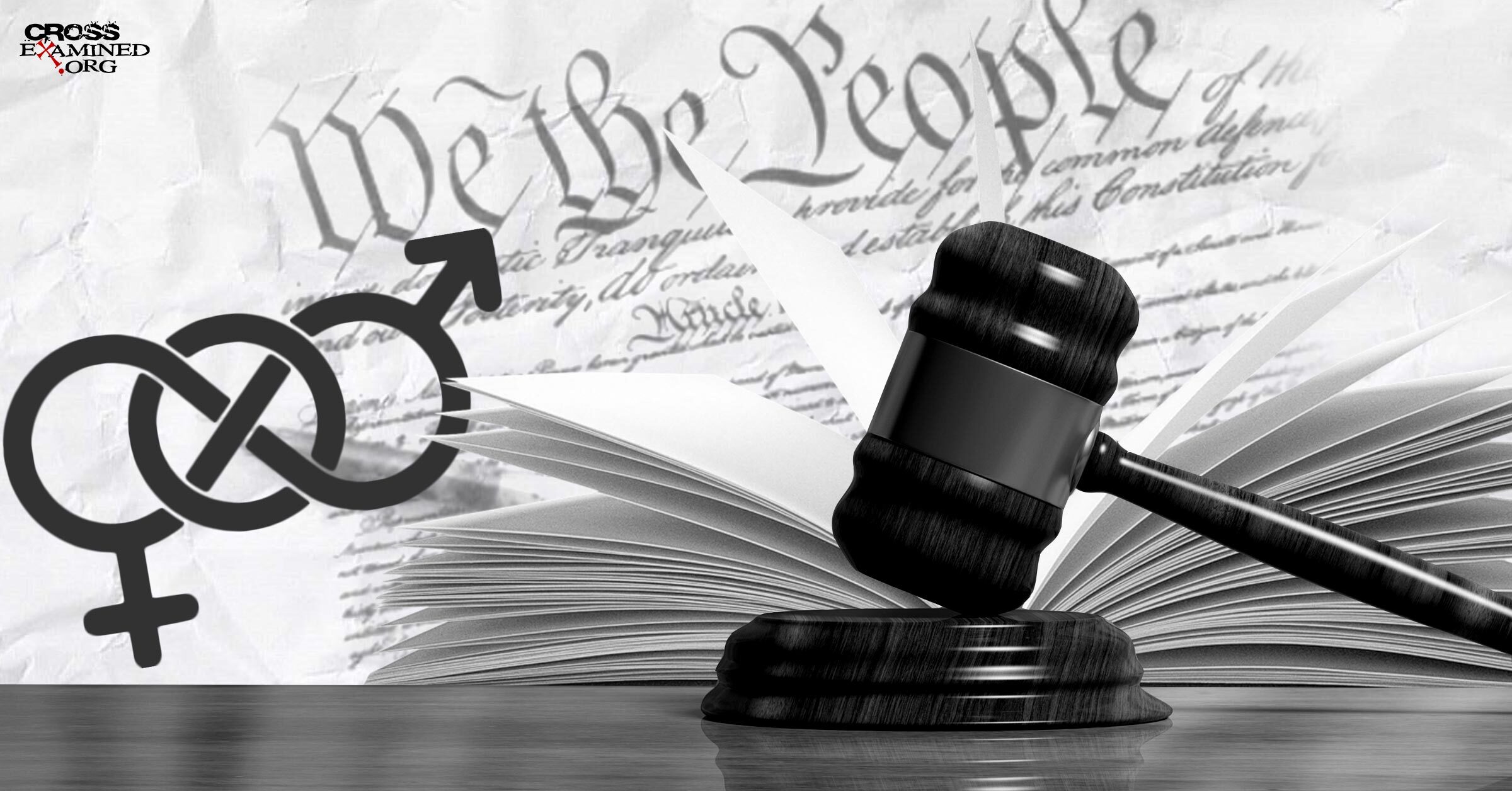If you’re like me, this upcoming election feels like a choice between which electric outlet to jab a fork into. I’m not a big fan of either candidate. It may be tempting to just sit-out this election. But we shouldn’t give up that easily. This November, you won’t be voting for a pastor, or a personality. You’re not just voting for a president either. You’re voting for a package deal. We’re going to get the president and everything that comes with them. So, we owe it to ourselves to look past their personality and consider the rest of the caravan that’s coming along with them. Here are eight reasons why you and I should still vote in this election even if we don’t like either candidate.

If You Won’t Vote for Either Candidate Then . . .
1. Vote Down Ballot
Besides the presidency, there are thousands of other elected officers to be determined this November. History shows that whichever party wins the presidency gets a boost in the elections down ballot. You can help your preferred party win those other elections by endorsing their party for president.
2. Vote For a Cabinet
The president doesn’t work alone. He or she has a cabinet of about 15 different department heads, 10 other cabinet officials, and the Vice President.[1] This cabinet of 26 people advise the president on a regular basis. The president has the authority to appoint all of those officers. If you don’t like either candidate but you would trust a conservative cabinet over a progressive cabinet, then you know who to vote for.
3. Vote For 4,000 Presidential Appointees.
Besides appointing all the cabinet members, the president also appoints 4,000 or so government positions. When people say, “The Trump Administration” or the “Biden Administration” that’s what they are talking about; it’s the president plus the cabinet plus 4,000 or so appointees. The president isn’t just a personality but also a gateway for overhauling Washington DC.
4. Vote For a Vice President
Besides serving as the next in line for president, the VP is the Chief officer in the president’s cabinet. Even if you don’t care for Trump or Harris, you can get a sense of the administration direction through their running mate. Plus, you might see something in a VP candidate to inspire your vote.
5. Vote For a Party Platform
I would say ‘vote for the party’ but there’s no telling what the party stands for without their platform (what they say they’ll do) and their policies (what they do). In the last 5-8 years, the “left” has pulled farther left. “Old-school” democrats are considered moderate or even Republican now. Today’s Republicans are tough to distinguish from libertarians. The point is, you can still read the party platform of the Democrats and the Republicans and vote for the one that best fits our beliefs and values.
6. Vote For the Policies
Beside the party platform, both candidates represents a set of policies. Now, you can expect politicians to make all sorts of campaign promises leading up to the election. But I’m not talking about those empty promises. I’m talking about the party policies that are likely to happen, once that party is in power. The president, of course, can’t just make a new law. Congress does that. But the president, VP, and his cabinet can throw a lot of influence behind their party policies.
7. Vote For the Power of Executive Office
The president has the power to make executive orders including creating or disbanding whole departments if they so choose. Now, you may not trust either candidate with that power. But someone will have that power regardless. I bet you distrust one candidate more than the others.
8. Vote Against the Other Candidate
There is no option to vote for two U.S. presidents in this election cycle. So, when you vote, you’re always voting against the other candidate. Maybe you don’t like either candidate. But you can still vote against whichever candidate you dislike the most.
A Final Warning
If you aren’t convinced yet, and you don’t follow my advice, then you have that right. It’s a free country, for now. It’s not like Christians will lose their salvation for voting third-party or sitting this one out. But I would urge you not to waste your vote. You can still exercise wisdom, love, and courage by voting not for the president but for the policies, platforms, and personnel that they represent. Yes, that means voting in the presidential election, but it’s not just about the president. It never was. It’s about competing visions of what American will become over the next 4 years. You can vote for the future of America by voting on the direction of this country right now.
Otherwise, if you sit this one out, then you’re muffling your God-given influence. You’re wasting a precious gift. And you’re telling all the rot and darkness out there rioting in the streets as we speak that you’d rather keep your “salt and light” to yourself (Matt. 5:13:16). Perish the thought. Let’s go vote!
References:
[1] This number can change with any given administration, whenever a new office or department is formed, or another one is shut down.
Recommended Resources:
Correct, NOT Politically Correct: How Same-Sex Marriage Hurts Everyone (Updated/Expanded) Book, DVD Set, Mp4 Download by Frank Turek
You Can’t NOT Legislate Morality mp3 by Frank Turek
Legislating Morality (DVD Set), (PowerPoint download), (PowerPoint CD), (MP3 Set) and (DVD mp4 Download Set)
Does Jesus Trump Your Politics by Dr. Frank Turek (mp4 download and DVD)
Dr. John D. Ferrer is an educator, writer, and graduate of CrossExamined Instructors Academy. Having earned degrees from Southern Evangelical Seminary and Southwestern Baptist Theological Seminary, he’s now active in the pro-life community and in his home church in Pella Iowa. When he’s not helping his wife Hillary Ferrer with her ministry Mama Bear Apologetics, you can usually find John writing, researching, and teaching cultural apologetics.










